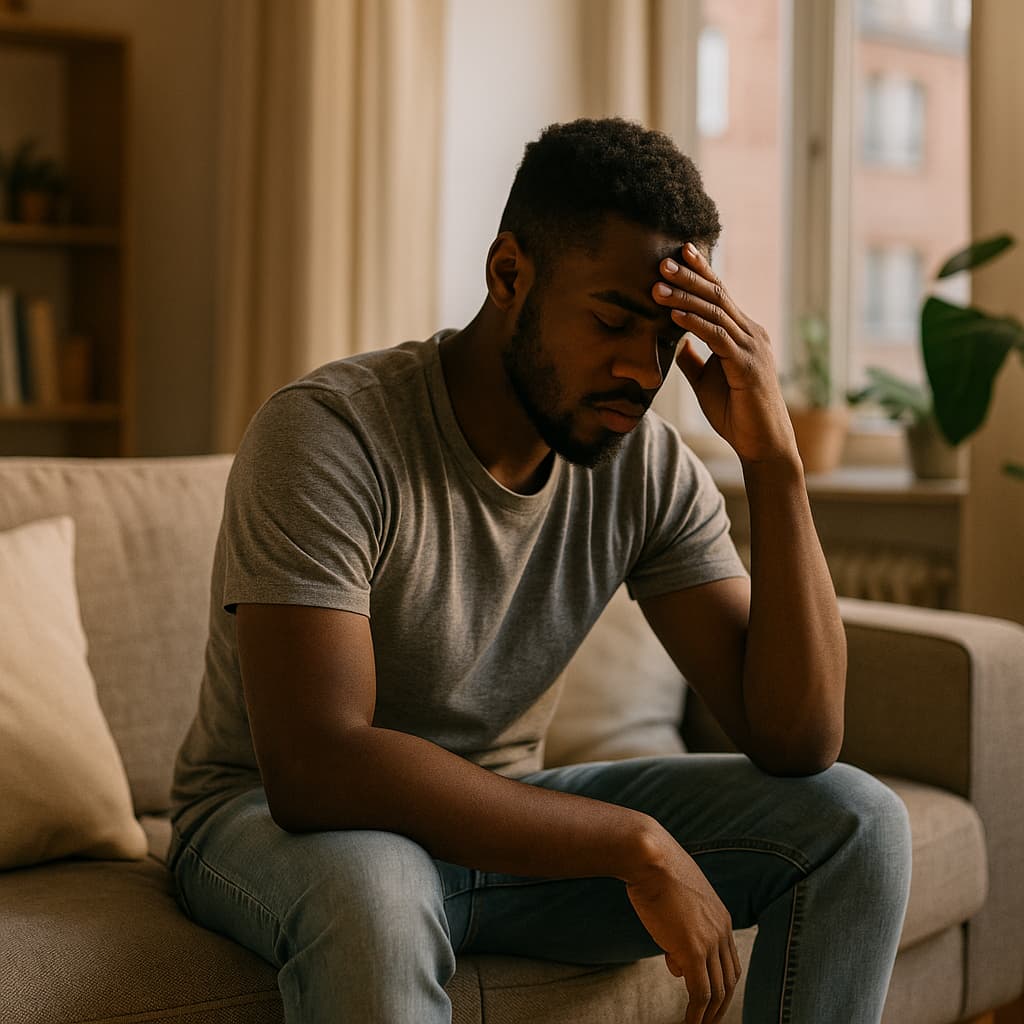And how to shift your emotional rhythm before the week begins.
Introduction
It’s strange, isn’t it?
Monday is the busy day — the meetings, the inbox avalanche, the back-to-work grind. But somehow, it’s Sunday night that feels heavier. Sharper. More emotional.
If you feel that rising tension before the week begins, you’re not imagining it. Sunday anxiety is a real and well-documented phenomenon — and for many, it feels more intense than the stress of Monday itself.
In this post, we’ll break down what causes this pattern, and how you can start to shift it with awareness, simple habits, and rhythm.
What Is Sunday Anxiety?
Sunday anxiety — often called the “Sunday scaries” — is a spike in emotional tension that builds during the final hours of the weekend. It usually shows up as:
- Racing thoughts about the upcoming week
- Restlessness or trouble winding down
- A tight chest or uneasiness before bed
- Mentally checking out from the present moment
It’s not just in your head. Studies have shown that anticipatory stress (the emotional tension of what’s coming) can be more activating than the stress itself.
Why Sunday Feels Worse Than Monday
1. You Have Too Much Mental Space
Paradoxically, part of the problem is that Sunday evening is quiet. There’s space — and in that space, your brain starts simulating worst-case scenarios.
This mental rehearsal can trick your nervous system into feeling like Monday has already started — and that you’re already behind.
2. You’re Transitioning, Not Acting
Transitions are emotionally raw. Sunday night is a shift from “off” to “on,” from rest to pressure. That in-between state creates friction — especially if you haven’t emotionally closed out the weekend.
3. The Weekend Didn’t Deliver What You Needed
Maybe you spent it doing chores. Or doomscrolling. Or checking emails out of habit. If your weekend lacked real restorative time, Sunday night becomes a moment of regret, not relief.
4. Monday Has a Structure — Sunday Doesn’t
Monday might be stressful, but it has shape: meetings, tasks, a calendar. Sunday evening? It’s a void — and that openness often gets filled by dread.
So What Can You Do About It?
You can’t remove Monday. But you can build emotional buffer zones — spaces that catch your anxious momentum before it builds.
1. Create a Gentle Sunday Night Ritual
Repeatable habits at the same time each week calm your nervous system and give structure to the emotional transition.
Not sure where to start? Try this guide:
How to Create a Sunday Night Ritual to Ease Work Dread
2. Stop Trying to “Fix” the Week on Sunday
Don’t rewrite your entire to-do list or clean your house top to bottom. That just reinforces the idea that Sunday is prep time — instead of a day of restoration.
Try setting a boundary hour: a time when you stop doing, and start unwinding. A walk. A stretch. A few deep breaths.
3. Focus on Emotional Grounding, Not Just Productivity
Mindfulness, slow movement, and simple habits can create inner spaciousness — even when external pressures are looming.
This guide can help you build those into your day:
6 Powerful Daily Habits for Inner Peace and Emotional Relief
Mini FAQ
Q: Why does Sunday anxiety feel so intense?
A: Because it’s about anticipation, not action. Your nervous system is responding to imagined stress before it arrives.
Q: Can I stop Sunday dread completely?
A: Maybe not 100% — but you can absolutely soften it. Rituals, grounding, and awareness change how your body reacts.
Conclusion
Monday has structure. Sunday doesn’t. That’s your opportunity.
Give Sunday night a rhythm that’s yours — and you’ll be surprised how much lighter Monday starts to feel.

